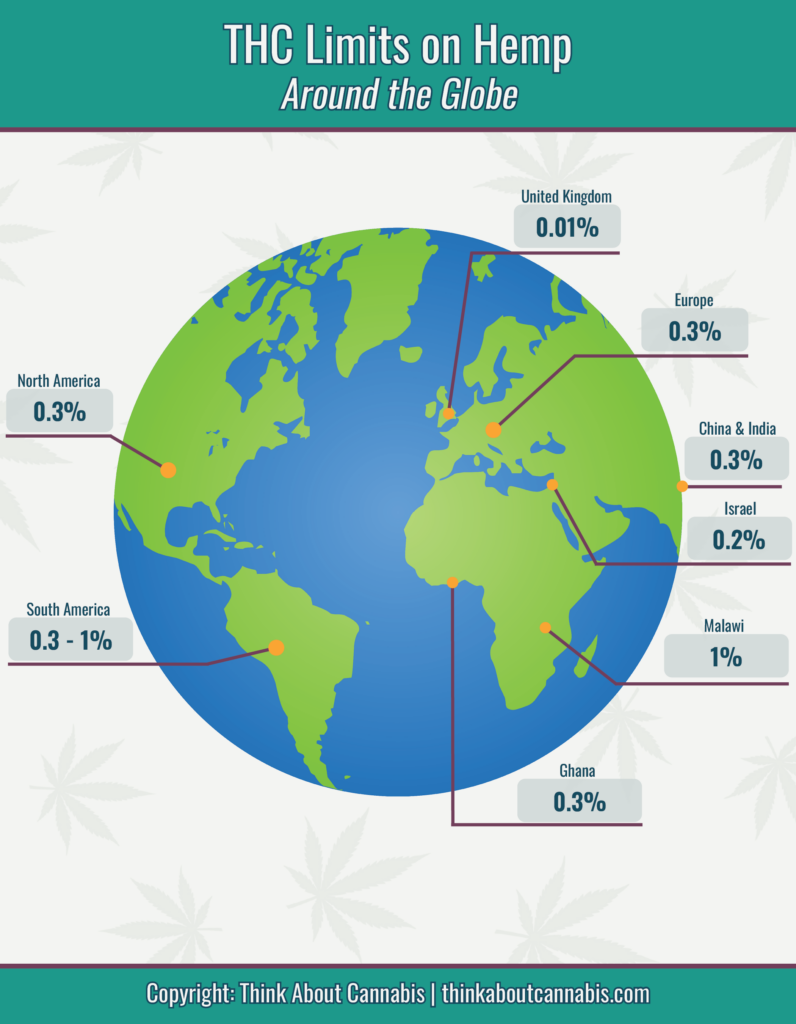Although hemp and marijuana are technically the same plant, both have unique properties and uses. While marijuana contains higher concentrations of the psychoactive component THC, hemp does not. Hemp also has industrial value and may be manufactured into fiber, fuel, paper, and more.

You can use hemp in various ways while marijuana has two basic uses – either recreational or medical. While people smoke marijuana to get “high,” or to treat chronic pain, hemp boasts as many as 25,000+ applications. Manufacturers add industrial hemp to body care products, foods, plastics, and an array of other items.
Even George Washington was a leading hemp farmer in his day. At one point, he considered replacing hemp for tobacco as his leading cash crop.
Hemp and Marijuana: Not Quite the Same
Both hemp and marijuana come from the Cannabis sativa plant but are classified as different subspecies.
On average, marijuana contains 10% THC. In the United States, hemp can legally only contain up to 0.3% THC. The amount of THC hemp may have varies around the globe, as well.

Hemp-derived CBD products are available in the form of isolate, broad, and full-spectrum products. Isolates contain just CBD and nothing else. Broad spectrum products contain virtually no THC but mainly contain trace amounts of other cannabinoids, terpenes, and compounds from hemp.
On the other hand, full-spectrum products contain trace compounds from hemp and up to 0.3% THC.
Hemp Seeds, Oil, and Powder
Besides harvesting hemp for its fiber, hemp growers cultivate the plant for its oil and the nutrition packed into the plant’s seeds. You can eat the plant’s seeds or hearts, either whole or without the hull. You can also drink hemp milk, which is similar to soy milk.
Cook with healthy hemp seed oil or use hemp powder or supplements to support ongoing better nutrition and health.
A Good Source of Vitamin E
Hemp, especially the seeds, boasts a rich amount of vitamins, minerals, and nutrients. For example, hemp oil contains vitamin E, which strengthens the immune system. As an antioxidant, vitamin E reduces the free radicals that trigger cell damage.
5 Key Ways Hemp Improves Your Health
1. A Reduced Risk of Heart Disease
You need to eat healthy fats to maintain your cardiovascular system. Hemp seeds contain an ideal ratio of omega-3 and omega-6 fatty acids. Both fats improve heart health by reducing the level of triglycerides and cholesterol and lowering blood pressure. The polyunsaturated fats in hemp products further support heart health by helping prevent artery blockages.
2. Menstrual Relief
Hemp oil contains gamma linolenic acid (GLA) – a substance that neutralizes the effect of the hormone prolactin. This hormone is frequently associated with premenstrual complaints, such as breast tenderness, bloating, irritability, and depression.
3. Better Digestive Health
To improve the digestive process, you need to add fiber. Whole hemp seeds supply excellent sources of soluble and insoluble fiber. While the insoluble fiber in the seeds adds bulk to the stool, the seeds’ insoluble fiber increases the good bacteria in the intestines.
When you combine both fibers in the digestive tract, you will experience smoother digestion and better health overall. By using hemp to support digestion, you can prevent conditions, such as hemorrhoids, ulcers, or constipation.
4. Better Looking Skin
Not only do the omega-3 and omega-6 fatty acids in hemp oil improve heart health, they also help combat dermatological problems, such as eczema. The oil in the seeds balances blood lipids, reducing skin itching and dryness.
Therefore, using hemp oil in your diet offers a simple way to improve the health of your skin.
5. Better Brain Health
You deal with a lot of external stimuli, even when you work online. Because hemp seeds contain brain-friendly antioxidants, omega fats, and essential minerals, they help improve cognitive functioning and focus.
How the Protein in Hemp Improves Health
Hemp seeds and powder contain lean sources of plant-based protein – good for supplementing a vegan or plant-based diet. Each hemp seed has 25% protein and contains little fat. When you consume this protein source, the metabolism speeds up, promoting a leaner body mass.
Unlike animal-based proteins, hemp protein does not contain saturated fats or cholesterol. Three tablespoons of hemp protein powder has about 3 grams of fat, 15 grams of protein, and 90 calories.
Plant-based Amino Acids
To function properly, your body requires 9 essential amino acids amino acids. You can usually get amino acids by consuming animal products, such as milk, eggs, or meat.
However, hemp-derived products contain all the essential amino acids for repairing muscle cells, regulating the nervous system, and supporting brain function.
Therefore, you can substitute hemp for animal foods, especially since the body does not produce these amino acids itself.
Tocopherols and Antioxidants
Besides being rich in omega-3 and omega-6 fatty acids, hemp protein contains tocopherols. These compounds lower the risk of cancer, cardiovascular disease, high blood pressure, and high cholesterol.
Hemp contains natural properties that promote antioxidant activity that lowers cancer risk as well.
Manganese, Magnesium, and Iron
Hemp protein contains the mineralsmanganese, magnesium, and iron, all of which keep the body’s systems working in sync and preventing disease.
- Manganese, a trace mineral, supports bone and joint health and enhances the metabolism of carbs and fats.
- Magnesium boosts athletic performance, fights depression, and prevents inflammation. The mineral also helps prevent migraines.
- Iron provides energy and promotes better respiratory health. Without enough iron, you can feel tired and short of breath.
Potassium
You will also receive a healthy amount of potassium in hemp protein and seeds. Potassium balances out the water in the body, since it also functions as an electrolyte. Three hemp seeds contain around 370 milligrams of the mineral – twice the amount you get from oranges or spinach.
FAQs
How Can You Add Hemp to Your Diet?
You can include hemp products in one of several ways into your diet. For instance, you can sprinkle seeds on casseroles, salads, cereals, or smoothies. You can also add the powder to smoothies. The powder blends well, making it an excellent vegan source of protein.
How Many Calories Does a Daily Serving of Hemp Seeds Contain?
A three-tablespoon serving of hemp seeds contains almost 170 calories. You can consume one serving of the seeds daily to support nutrition while eating a balanced diet.